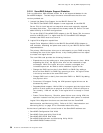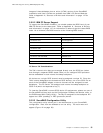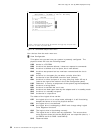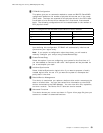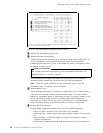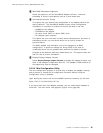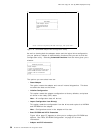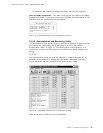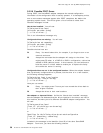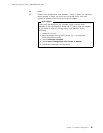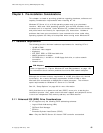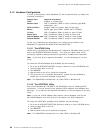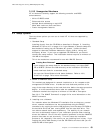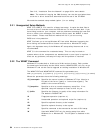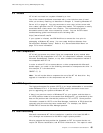This soft copy for use by IBM employees only.
2.5.2.6 Possible POST Errors
During POST, the ServeRAID adapter compares the stored configuration
information to the configuration that is actually present. If a discrepancy exists,
one or more status messages appear after POST completes, but before the
operating system loads. You will be given a list of choice to select from.
Possible messages include:
New drives installed:
You will see:
Following new drives found
(old state: new state: ch:bay)
[...a list of drives...]
This is an informational message only.
Configured drives are missing:
You will see:
Following drives not responding
(old state: new state: ch:bay)
[...a list of drives...]
Possible choices here are:
F4 Retry. You would select this, for example, if you forgot to turn on an
external enclosure.
F5 Accept the new state that the adapter will assign to the drives. You
might press F5 when, in a RAID-5 or RAID-1 configuration, a drive has
started in DDD (defunct) mode. In this instance, you can continue to
boot the server in critical mode to enable you to replace the faulty
drive while the server is running.
Configured drives are not in the configured location:
When the adapter detects
that a previously configured drive is present, but the drive is in a new location,
the following message appears:
Following drives found in new location
(old ch: old bay: > new ch: new bay)
[...a list of drives...]
Here you can select:
F4 Retry. You might press F4 once you have moved the drives back to
their original locations.
F6 Accept the drives in their new locations.
New adapter or Imported Drives:
Unlike the “New drives installed” message,
here the adapter has detected that the drives installed in the server are new to
this machine, but were part of a different ServeRAID adapter configuration. You
will see:
Following new drives found
(″host id″: old ch:old bay: new ch:new bay)
[...a list of drives...]
or
Identifiers for the following drives do not match configuration
(″host id″: channel:bay > channel:bay)
[...a list of drives...]
Included in the message is the identifier (Host ID) of the other ServeRAID
Adapter. From here, you have the following choices:
58 PC Server and Windows NT Integration Guide



